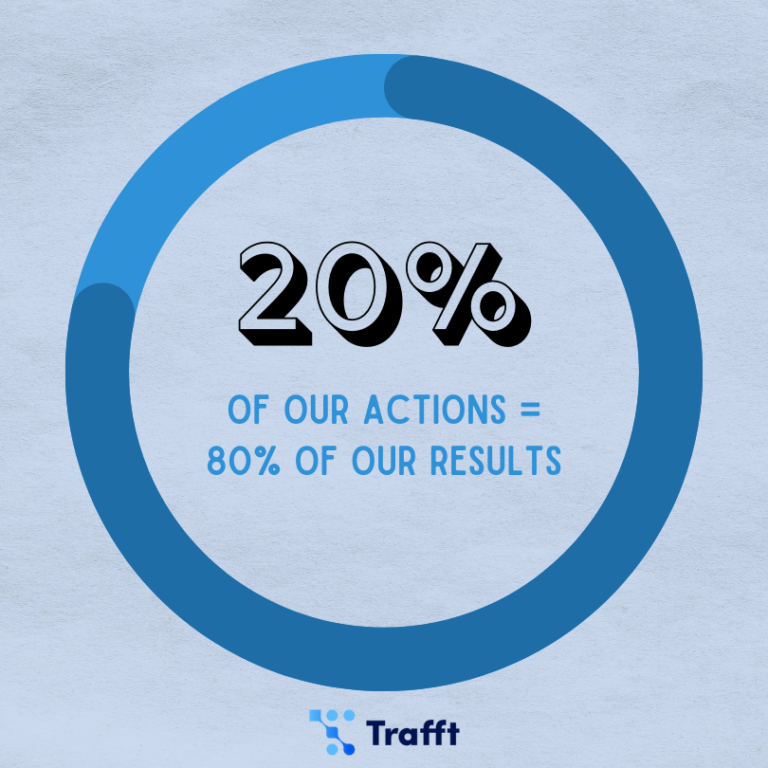The working day only has so many hours – and those hours aren’t infinite. That’s what makes analyzing time management statistics a crucial part of taking control of your time. There are so many techniques, and rules, so it also makes sense that there are hundreds of time management statistics.
While these statistics might sound like a bore, they contain fascinating statistics that are nothing short of mind-blowing.
When people find themselves in a situation where there isn’t enough time to complete everything, they often express their feelings of overwhelm, stress, or time constraints.
“I’m swamped.”
“There just aren’t enough hours in the day.”
“I’m drowning in work.”
“I have too much on my plate.”
“Time is slipping away.”
“I’m running out of time.”
“I wish I had more hours in the day.”
“I can’t keep up with everything.”
“I’m feeling the pressure.”
“I’m stretched thin.”
If this is you, and you want to explore what influences your time and how to manage it better, read on!
General Time Management Statistics and Facts

Alright, let’s break it down – time management is kind of a big deal. It holds the secrets for how we perform at work, how well we do in school, and how we feel overall.
While it’s not the only factor, time management statistics show that management has a moderate influence on both our job performance and well-being. Let’s see what the studies say:
- Time management seems to have a bigger impact on our well-being than on our performance.
It’s like it’s giving us a little boost of happiness along the way.
- Time management helps us deal with different kinds of stress, although it’s not a total stress-buster.
When it comes to beating the blues, especially the psychological kind, time management is like our trusty sidekick.
- Gender correlates weakly with time management, but women generally have stronger time management skills.
- Women’s time management skills seem to get even better as the years roll on.
- Here’s a fun twist to time management statistics: there’s this super weak, but still kind of important connection between time management and multitasking.
Basically, the better you are at managing your time, the less likely you are to be a multitasking maniac. It’s almost common sense now that multitasking doesn’t really lead to top-notch performance, so it makes sense that folks with good time management skills are steering clear of it.
- Time management is strongly linked to personality traits. The study reveals the substantial magnitude of the effect (r = 0.451).
Conscientiousness involves traits like orderliness and organization, which align closely with effective time management.
This strong correlation between time management and personality, especially conscientiousness, supports the idea that your disposition plays a big role in how you manage your time.
- Completing tasks is more than just ticking boxes; it’s like a mini-celebration in your brain and unfinished tasks can lead to psychological discomfort.
Completing tasks isn’t just about getting stuff done; it’s about feeling awesome, getting a sense of accomplishment, and getting a dose of those feel-good neurotransmitters. It’s like a double win – you get things done, and your brain throws a celebration for you.
- Of eight telephone calls placed, one will be repeated due to missing information.
- New ideas, concepts, and suggestions will be criticized in under 8 seconds.
- When it comes to planning allotted time for tasks, we underestimate how long a task will take almost every time. Most tasks take twice as long as we think.
- A person who gives themselves one thing to do in a day will generally take all day to do it. If the same person gives themself two things to do, both will get done. If someone adds 12 tasks to a to-do list, most people do not get all 12 done but will get at least 7 done.
The time management statistics above show how effective adequate time management is. It also proves how important it is for the success of both companies and their individual employees. Without time management techniques, companies suffer from lost productivity, loss of revenue, and an increase in health deterioration among employees.
Time Management Statistics About Methods & Techniques
Ever noticed that when you focus on all those small tasks, the big ones you really care about can get pushed to the back burner? Sometimes, they stay there forever, especially if there are no deadlines to light a fire under them.
What happens next? Studies show that:
- We end up not achieving the goals that really matter to us, the ones that align with our values and our sense of doing meaningful work (and maybe getting a bit of recognition for it). It’s like we’re stuck on the never-ending treadmill of completing tasks, and when that looming deadline for a big, complex project finally arrives, it’s like a stress explosion. Time suddenly feels scarce.
- Researchers dug deep into 158 studies and papers, looking at how 50,000 people managed their time over the past 30 years. Guess what?
- 72% of those folks reported having greater life satisfaction when they could structure and manage their time.
- Time management isn’t just about getting stuff done; it also reduces stress and anxiety. When we feel like we’re in control, like we’ve got the reins on our life, it’s like our stress levels take a nosedive. So, it’s not just about ticking off boxes; it’s about feeling calmer and more in charge.
- If you spend 10-12 minutes planning your day, you’ll save up to 2 hours of time that would have otherwise gone to waste.
- The average person has tried and/or uses 13 different methods for managing their time.
- 70% of people use a to-do list to complete all their most important tasks
- Following time management techniques
- Research states that implementing time management techniques such as an Eisenhower matrix will make enough room for productive work as well as social interactions.
- Time Management Stats for Work: The Conclusion
When you learn how to increase productivity and get more tasks done in less time, you become less stressed and enter a healthier state of mind. With so much hype surrounding the idea of time management, you’re likely wondering: do the recommended changes actually have a benefit?
The answer is yes!
Time management is getting the right things done, which is an effective way to tackle every important item on your to-do list.
For businesses that provide service, appointment scheduling is a huge part of every business day.
It’s also time-consuming – but there are a few ways to make it go more quickly while proving the negative time management statistics wrong.
5 Time management strategies that are backed by time management facts
Valuing your time is the key to being successful in your time management journey – the more you value your time, the better you’ll be at managing it. Time management will help you in every aspect of your life but will be particularly helpful because it will put you on a clear path. This path will help you to gauge how much time and effort is needed to succeed.
Time management strategies are tools that help you complete tasks within a specific timeframe and with a steady workflow. Failing to manage your time effectively can lead to a host of stress-related problems, poor job productivity, and loss of business.
What are the best time management strategies? Let’s check out a few.
Learn to prioritize
Prioritization is one of the main strategies taught by self-help professionals – and for good reason. By prioritizing your daily tasks, you ensure that you spend your time where you should be: that is, on tasks that are crucial and important. The most important tasks should be at the top of your to-do list and come before any other tasks that could stand to wait just a little bit longer.
Maintain a clear focus
Before getting started on your to-do list, you should always sit down and determine your main focus for the day. Figure out what you want to achieve that day and which tasks need to get done.
Get the worst done first
We understand that when one of your most important tasks is boring, dull, or difficult, it can be hard to get the motivation to do it. But try to remember that this task is important for a reason and, even if the ask isn’t of any real importance, it still needs completion. So, bite the bullet and do the least desirable task first – get it out of the way so you don’t have to worry about it.
Get rid of interruptions and distractions
As the time management statistics above show, interruptions and distractions are counter-productive. When you’re trying to boost your efficiency, take time to figure out your distractions and find a solution for getting rid of them.
Have an ever-evolving task list
Although you sat down at the start of your day and made a task list, other tasks will likely come up during the day. Don’t be afraid to add these tasks to your list! Add them right away and, as you complete your tasks, cross them off or otherwise mark them as complete. Update your list and stay on top of it.
Optimize and automate your working schedule
Staying organized has never been easier.
You can now manage your time and business and grow your brand with a single, powerful software that keeps all of your appointments in line, your clients organized and your business booming.
Trafft is perfect for business owners and managers who need to streamline their booking experience both for their staff and their clients.
Trafft automates everything for you, even sending automated email or SMS reminders to your clients. No-shows? Not anymore!
The Trafft booking software adapts to different industries for a blissful online booking experience and employee management.
Want to know how Trafft can help you with time management? Check out Trafft’s awesome features to see what you are missing.
It’s time to stop wasting time! Check out Trafft’s plans, choose one that suits you most, and automate your business!
Time Management Statistics: What Are the Most Common Time Wasters?
- So, you know those folks who just love to put things off? Research says that 20% of people are habitual procrastinators.
- If you’re a procrastinator at work, your work quality might take a bit of a hit. You can even end up with some not-so-fun stuff like insomnia or messing up your immune system and gut. Not a great trade-off, right?
- In one research, 67 percent of respondents say that spending too much time in meetings distracts them from doing meaningful work.
- 34 percent say they waste between 2-5 hours per week on calls or meetings that don’t reap any benefits.
Fun facts about time management and meetings:
- Of every 10 people who attend a meeting, 9 will daydream during it.
- Every day in America, there are roughly 17 million meetings.
Let’s talk about the art of not wasting time.
- People who manage their time efficiently set clear boundaries between their “work” and “life” – they know when to call it a day.
- Plus, they’ve got this magic word in their vocabulary: “no.” When they’re drowning in tasks, they’re not afraid to use it.
- They’re also all about regular breaks and taking some time off. And the coolest part?
- They team up with others in ways that make everyone’s lives easier.
Time Management Statistics: Work and Business
What are the intriguing statistics surrounding time management and its relationship with performance in the workplace? From moderate impacts on work performance to surprising findings about job autonomy, and the promising potential of automation, these numbers shed light on the role of time management in work and business.
- Time management has a moderate impact on performance at work, with correlations hovering around r = .25.
This statistic suggests that there is a measurable connection between effective time management and improved work performance. The correlation indicates a moderate relationship, meaning that as individuals become better at managing their time, their performance at work tends to improve to some extent.
- The relationship between time management and job performance significantly increases over the years.
Over time, the connection between effective time management and job performance becomes more pronounced. This could imply that as individuals gain experience and refine their time management skills, their ability to excel in their job roles also grows. This highlights the importance of continuous improvement in time management.
- Time management does not correlate significantly with job autonomy.
Contrary to expectations, this statistic indicates that having job autonomy (the freedom to make decisions and manage one’s tasks independently) does not necessarily lead to better time management skills. It’s surprising because one might assume that individuals with more control over their work would excel at managing their time. This finding suggests that time management skills are influenced by factors beyond job autonomy.
- 54% of employees believe they could save 240 hours annually through automation
- 41% of business leaders are currently using workforce automation technology
- 61% of business leaders believe that automation can be very easily utilized in their industry and jobs within their industry in the next 12 months
These statistics highlight the growing interest and potential of automation in saving time in the workplace. Many employees recognize the possibility of significant time savings through automation. Business leaders are also taking notice, with a substantial percentage already adopting automation technology and even more expressing confidence in its future applicability. This trend suggests that automation is becoming a key strategy for improving time management and overall efficiency in various industries.
- The average manager spends three hours per day handling unforeseen interruptions and problems.
- Employees, on average, work the hardest from 9 AM to 12 PM. After this time, productivity tends to drop significantly.
- A typical office worker checks their email 50 times and their social media platforms 77 times per day while they’re at work.
- It’s proven that 66% of people check their emails 7 days a week. They also expect to receive email responses the following day.
- Harvard University did a study and found that American companies lose roughly $65B. This is because their employees are suffering from a lack of sleep.
- Those who work at a messy or otherwise unorganized workspace spend 1 ½ hours (on average) looking for misplaced items.
- A 2012 study done by the New Economics Foundation, London found that employees who are satisfied with their jobs are more productive.
- Workers receive, on average, 7-8 disruptions per hour. This equals 50-60 per day – most of which are unnecessary. This translates into that workplace distractions cost each employee an average of 3 hours per day.
- Florida State University discovered that a worker’s performance peaks when they work undisrupted for 90 minutes.
- Nearly half of all employees in America believe that meetings are the number one source of wasted time at the office.
- Employees spend, on average, 31 hours per month in meetings. This means that they spend an hour per day.
- Of the time given to a workday, 80% is spent doing tasks with little to no value, and only 20% is spent doing something important.
- Within the last 20 years, the time that a person works has increased by 15%, while the same person’s personal time decreased by 33%.
- 62% of full-time workers report work-related aches and pains. 38% report pain in the hands, 44% eyestrain and pain, and 34% report difficulty sleeping due to stress.
Time Management Statistics: The Conclusion
When you learn how to increase productivity and get more tasks done in less time, you become less stressed and enter a healthier state of mind. With so much hype surrounding the idea of time management, you’re likely wondering: do the recommended changes actually have a benefit?
The answer is yes!
Time management is getting the right things done, which is an effective way to tackle every important item on your to-do list.
For businesses that provide service, appointment scheduling is a huge part of every business day.
It’s also time-consuming – but there are a few ways to make it go more quickly while proving the negative time management statistics wrong.
If you enjoyed reading this article on time management statistics, you should read about why time management is important.
We also wrote about a few related subjects like time management systems, using a time management coach, the time management matrix, time management courses, time management quotes, time management strategies, and techniques.
Do you want an app for that? We also selected the best time management apps, but also free time management apps for tight budgets, and if you’re looking for a time tracking app, we picked the best of them.
Needless to say, we are really into time management and we don’t like to waste time because we know how poor time management can affect us. You might also want to give a chance to a time management coach.




